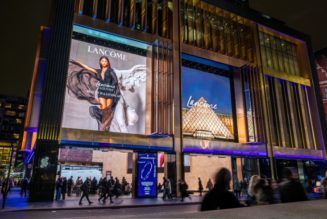
Ledger Enterprise the B2B arm of web3 security outfit has partnered with Salesforce, TIME and Farfetch.
With over six million devices sold worldwide since its launch in 2014, web3 natives will be familiar with Ledger’s self custody security solutions.
The outfit’s hardware wallets — most recently Ledger Stax — allow individuals to offline or cold store the private keys needed to move their assets — or in other words to buy or sell cryptocurrency or NFTs.
Long and short, this kind of self custody provides a safer alternative to outsourcing storage of your key to a server managed by an external organization which might get hacked or mismanaged. To date, Ledger devices have never been hacked.
Ledger Enterprise, the B2B arm of the outfit, does similar at macro level, giving web2 native companies the tools to integrate web3 technology, helping them build the necessary infrastructure to operate securely within the new paradigm.
This month it announced partnerships with Salesforce on the tech side and TIME and Farfetch around self custody.
“It’s about the scalability factor,” says Alex Zinder, the arm’s Global Head. “Taking those experiences and bringing them to scale with the right governance and compliance tools you need to run a business.”
Examples include crypto treasury management (how to securely buy and hold currency; smart contract creation and minting of NFTs to create inventory and delivery to a retail consumer. “So these massive drops don’t fail and you don’t lose brand equity while continuing to drive user engagement and adoption,” adds Zinder.
This mass adoption of web3 tech, is, of course, the name of the game. Take cryptocurrency — which luxury marketplace Farfetch began accepting in October.”
We’re a publicly listed company with regulatory requirements,” says Nina Patel, Farfetch Director of Innovation, Retail and Web3 of the need to manage this in a way she deemed “enterprise appropriate.”
The ability for self custody conferred by Ledger, plus internal governance with multiple sign offs on the transfer of funds ticked all the boxes.
But it was also Ledger’s one-stop-shop capability that proved attractive, Patel said. She’d looked at other security solutions like Coinbase for currency but that didn’t work for digital assets which she said often just involved an executive with a wallet.
While specific details on potential upcoming NFT based projects remain under wraps, Patel says the next phase involves “bridging web2 and web3 for fashion and luxury.”
Already within the space, Farfetch ran a pre-order campaign in 2021 with DRESSX created 3D digital assets placed on influencers which avoided the shipping of physical goods, and earlier this year it created 3D versions of Burberry accessories with Threedium. It has also acquired augmented reality outfit Wanna currently integrated on the Browns Fashion site for virtual try-on of luxury watches.
Farfetch has also partnered with Outlier Ventures on web3 start-up accelerator Dream Assembly Basecamp with the aim of helping to drive the industry forward.
In terms of specific web3 based initiatives, Patel sees greatest potential around product IDs, provenance and authenticity as opposed to a product’s digital twin per se.
“We ask what is the additional value that blockchain can unlock for the individual,” she says citing also the tokenization of loyalty programs and community building.
“We see it as another revolutionary moment. How web3 technology can change the game in the same way that marketplace did for retail.”









